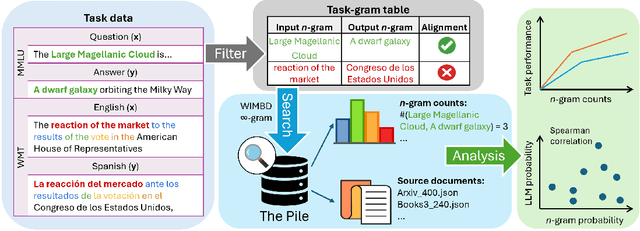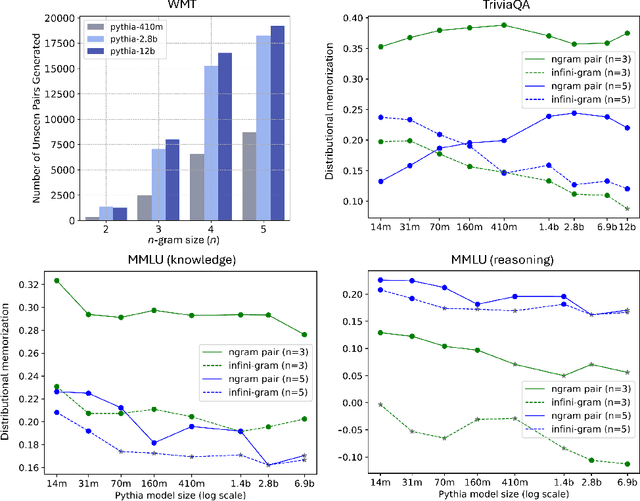Generalization v.s. Memorization: Tracing Language Models' Capabilities Back to Pretraining Data
Paper and Code
Jul 20, 2024



Despite the proven utility of large language models (LLMs) in real-world applications, there remains a lack of understanding regarding how they leverage their large-scale pretraining text corpora to achieve such capabilities. In this work, we investigate the interplay between generalization and memorization in pretrained LLMs at scale, through a comprehensive $n$-gram analysis of their training data. Our experiments focus on three general task types: translation, question-answering, and multiple-choice reasoning. With various sizes of open-source LLMs and their pretraining corpora, we observe that as the model size increases, the task-relevant $n$-gram pair data becomes increasingly important, leading to improved task performance, decreased memorization, stronger generalization, and emergent abilities. Our results support the hypothesis that LLMs' capabilities emerge from a delicate balance of memorization and generalization with sufficient task-related pretraining data, and point the way to larger-scale analyses that could further improve our understanding of these models.
 Add to Chrome
Add to Chrome Add to Firefox
Add to Firefox Add to Edge
Add to Edge